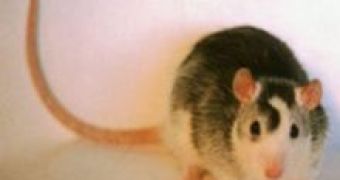Rats are a bunch of intelligent creatures. For one thing, you can see it on their face. But if you want a more objective proof now it's available. Scientists managed to demonstrate that rats understand causal relations and that they cannot be fooled by a mere coincidence of events.
Scientists believed for a long time that the ability of understanding causality was specific only to humans and maybe also to some of the higher primates. Anthony Dickinson, an experimental psychologist at the University of Cambridge, U.K., said that the mainstream view is that "causal reasoning is restricted to humans and possibly dependent upon language." The mainstream belief was that animals are capable only of making associations between events but that they were unable to see if such an association is necessary of simply accidental.
In a famous experiment, Pavlov taught dogs to associate dinner with the sound of a bell. The dogs would salivate whenever a bell rang regardless of whether food was given to them. This indicates that a dog considers a simple association of events happening closely in time to be necessary.
In the new experiment, the rats were also taught to associate a sound with food. But then, instead of just listening to the sound, they were allowed to provoke the sound themselves. The researchers found that when the rats produced the sound themselves they didn't go to look for food. Thus, it is clear that they understood that food is not necessarily associated with the sound. And if they had caused the sound, it was obvious to them that food would not be available - because they weren't the cause behind the distribution of food.
"When it rains, you expect that both your lawn and your neighbor's lawn will be wet," says Michael Waldmann, an experimental psychologist at the University of G?ttingen, Germany, "but if you water your lawn, you wouldn't expect your neighbor's to also be wet. And this is the type of reasoning the rats are using."
"Our ability to reason causally might not be unique," said Aaron Blaisdell, a behavioral neuroscientist at the University of California in Los Angeles. "You can't just draw a line around the human species and say 'They reason, and other animals don't'."
According to Dickinson such abilities have escaped detection insofar simply because researchers "have just never thought of [an experiment] as clever as this."

 14 DAY TRIAL //
14 DAY TRIAL //